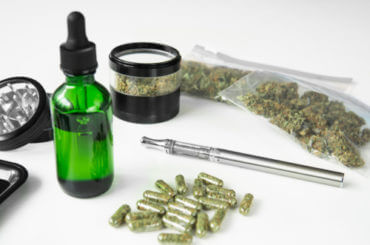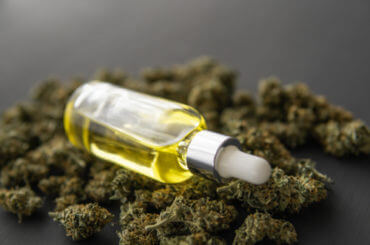
You might be familiar with the terms CBD and THC, but if you don’t know what CBD and THC are, then first let us explain them. CBD is the abbreviation of cannabidiol whereas THC is the abbreviation of tetrahydrocannabinol. Both CBD and THC are two cannabinoids present in the hemp plant. CBD is associated with many health benefits to both humans and pets including dogs and cats. THC is also beneficial but in small quantities. A high amount of THC can induce euphoria in humans. The effect of THC on pets is discussed in this article. Read below to find out how CBD and THC can affect pets.
Health Benefits Of CBD For Pets
CBD claims to reduce the stress and anxiety problems of many pets including dogs. Moreover, CBD can help with sleep disorders, and pain management for pets. Currently, there are very few studies that can support the benefits of providing CBD to pets. There is research taking place to study the medicinal uses of CBD in pets. Studies are mostly based on the effectiveness of CBD for many chronic pet diseases like epilepsy, pain, osteoarthritis, etc. The FDA hasn’t approved any CBD-based medications for pets and warns of possible liver damage and stomach upset if substandard CBD products are used. Anyway, CBD is tolerated by pets if they are provided with digestible fat content. Let us look at how THC affects pets.
Can THC Exposure Harm Your Pets?
Legal CBD products don’t have more than 0.3% THC. So you don’t have to worry about THC exposure when you provide your pet with CBD products. But if your cat or dog directly ingests a cannabis plant, the THC content could become a threat to your pet. Anyway, the chances of your pet feeding on a cannabis plant are very low. But you have to be careful with the CBD products you use, like CBD cookies, CBD chocolates, etc.
High THC content will make your pet euphoric. They may seem confused, disoriented, and dazed. The symptoms differ according to the dosage of THC intake. Other symptoms include vomiting, dilated pupils, drooling, vocalization, hyperactivity, etc. THC exposure can also increase the blood pressure and body temperature of your pet and in higher doses, it can cause coma, seizures, and tremors.
If you find your pet exposed to THC, you should immediately bring them to a veterinarian. Do not panic or avoid seeking medical help thinking that your pet will recover on its own.




